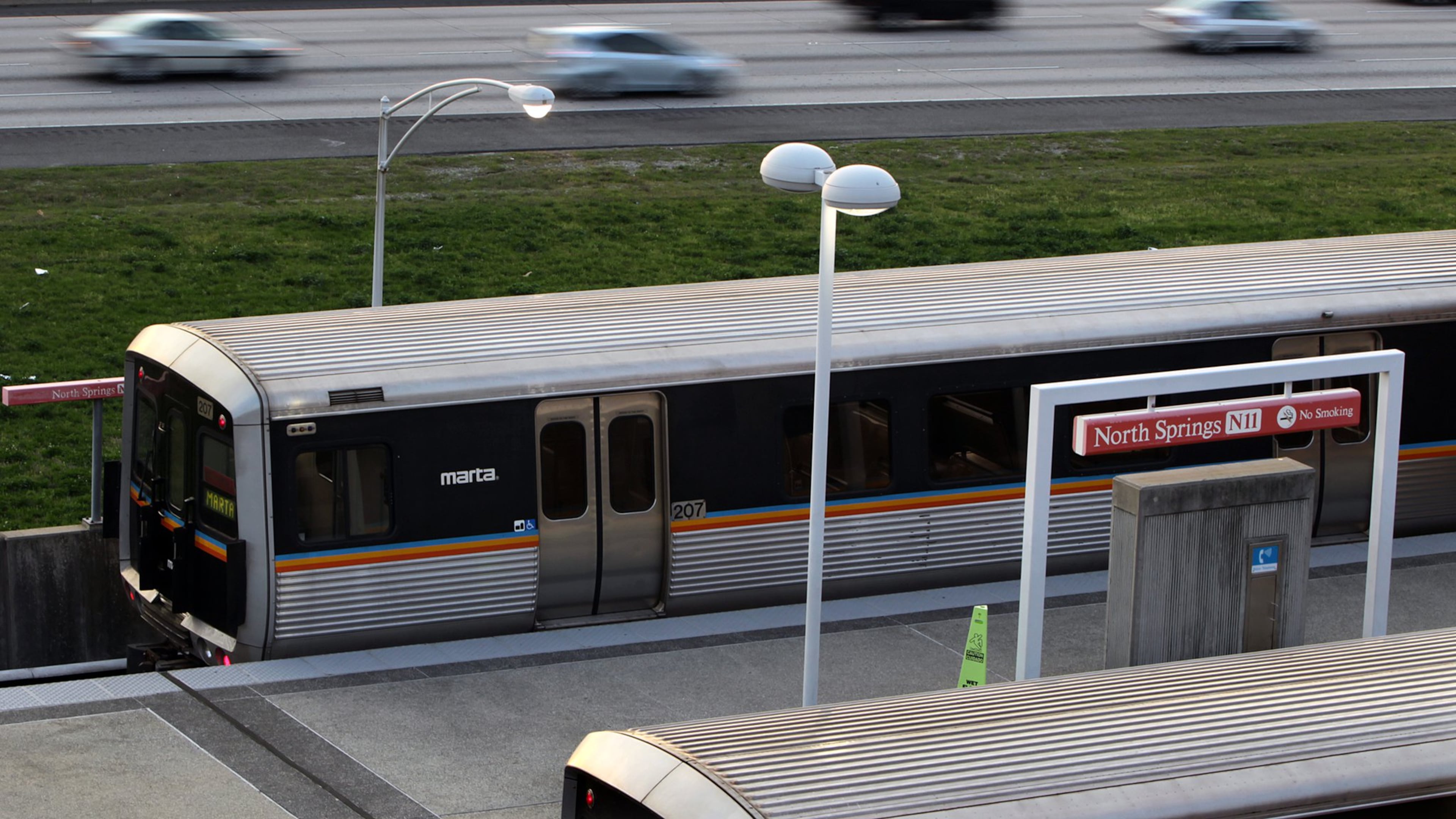Fulton County will pay for public transportation study

Fulton County leaders have long been happy with the November passage of a sales tax to help fix roads. Now, they're putting money behind efforts to expand public transportation.
With the support of leaders from Fulton’s 14 cities, county commissioners on Thursday voted to spend $200,000 as a local match to fund a $1 million transit study. The remaining $800,000 is expected to come from federal grants.
The money will go to the Atlanta Regional Commission, which plans to produce a comprehensive report by the end of the year. It should encompass what the county's transit needs are, what the cost would be and how long any projects would take. It will look at transit from a traffic reduction standpoint and as a form of economic development.
“I’m excited about anything that moves the concept of effective transit forward,” said Mike Bodker, the mayor of Johns Creek. “If done properly, it’s a huge step forward.”
While Fulton commissioners agreed to pay for the local share, they hope the city councils will agree to reimburse them for their costs.
That may be a hard sell for some leaders. Alpharetta Mayor David Belle Isle said that if the justification for a transit study wasn't explicit in saying it aimed to reduce traffic congestion, his council wouldn't support it. Bodker said he was wanted the study to include communities outside of Fulton's borders.
People come to and from and through Fulton County, he said, but traffic doesn’t stay within county lines.
After voters passed a sales tax to pay for road fixes, county leaders think a transit plan would be the next step to help solve the problem of excessive congestion.
Last year, Fulton residents outside the city of Atlanta agree to raise sales taxes by three quarters of a penny to fund road and sidewalk improvements. The tax, which goes into effect April 1, is expected to raise $655 million over five years to pay for road widenings and bridge fixes. (Atlanta residents also approved two tax increases — half a penny for transit, which is expected to raise $2.5 billion for MARTA expansion over 40 years, and four-tenths of a penny for $320 million over five years for other transportation spending.)
They had put transit expansion on hold while they waited to see whether voters would approve the road tax. Now, with legislators looking at a state-wide transit plan Fulton leaders could also decide to wait for buy-in from other counties.
But some don’t want to wait to see what others want to do.
Liz Hausmann, a Fulton County commissioner, said leaders need to balance the “short-term crisis” they are experiencing with traffic with viable, long-term solutions.
“I think this is a really positive thing to do on our own, so we can manage it,” she said. “We really don’t have authority outside Fulton County. We are the heart of the traffic problem in this state.”
Southside mayors agreed that there was no time to waste.
“Waiting is already a deficiency,” Union City Mayor Vince Williams said.
Will other counties come on board when they see that Fulton has put money forward? Several leaders hope so.
Roswell Mayor Jere Wood said he was “extremely proud of Fulton County” for ponying up the money — and he hoped leaders in Cobb and Gwinnett counties would take note.
“Somebody’s got to take the first step,” he said. “If we wait for Cobb and Gwinnett to join us, we are not leading ourselves. …I don’t want to wait for them.”
Fulton County Commissioner Lee Morris said he thought Fulton needed to take the lead if it wanted to see improvements.
“If we do wait on these other counties, we’ll never get anywhere,” he said. “I wish to heck the whole region would embrace this in a collective way, but I don’t want to wait for them.”



